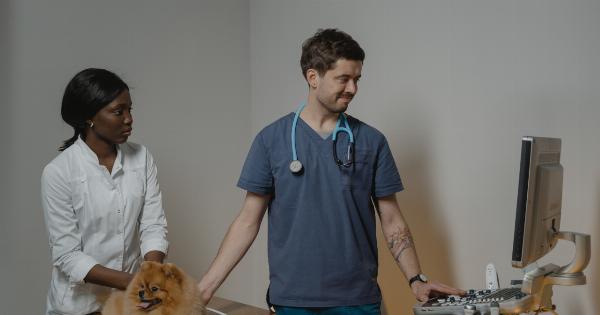Seeing your beloved dog shake can be distressing. You might wonder if your furry friend is feeling cold or scared. However, shaking can also be a sign of an underlying medical condition that requires prompt veterinary attention.
In this article, we will explore the reasons why a dog shakes and the possible health implications of this behavior.
Normal Shaking in Dogs
First, let’s establish that some degree of shaking is perfectly normal in dogs. Dogs may shake to relieve stress or to get rid of water after swimming.
Shaking can also indicate excitement, especially if accompanied by a wagging tail or jumping up and down. It is not uncommon for dogs to shake when they anticipate a treat or when they see their owners after a long absence.
Cold or Fear
Dogs may also shake when they are cold or frightened. Cold weather, being wet, or simply feeling chilly can make your dog shiver involuntarily. In addition, dogs may shake when they are scared or fearful.
This can occur in response to loud noises, such as thunderstorms or fireworks, or unfamiliar situations.
Medical Conditions That Can Cause Shaking
If your dog’s shaking persists or occurs frequently, it may be due to an underlying medical condition. Here are some possibilities:.
Epilepsy
Epilepsy is a neurological disorder that affects dogs as well as humans. Epileptic dogs may show signs of shaking or twitching, especially in their legs or head. Seizures can range from mild to severe and may last for several minutes.
If your dog has epilepsy, your veterinarian can prescribe medication to manage the condition.
Distemper
Distemper is a viral disease that affects multiple organs in dogs, including the nervous system. Dogs with distemper may experience tremors or shaking, particularly in their jaw or limbs.
Other symptoms of distemper can include fever, coughing, and discharge from the eyes and nose. Distemper is a serious illness that can be fatal, so if you suspect your dog has distemper, seek veterinary care immediately.
Hypoglycemia
Low blood sugar, or hypoglycemia, can cause your dog to shake or tremble. This condition is more common in small dog breeds and puppies. Hypoglycemia can be caused by a variety of factors, including inadequate nutrition, stress, or an underlying disease.
If your dog has hypoglycemia, your veterinarian may recommend changes to their diet or prescribe medication to manage the condition.
Tick-Borne Diseases
Ticks can transmit a variety of diseases to dogs, including Lyme disease and Rocky Mountain spotted fever. These diseases can cause a range of symptoms, including fever, lethargy, and joint pain, as well as shaking or tremors.
If you suspect your dog has a tick-borne disease, contact your veterinarian for advice on testing and treatment.
Arthritis
Arthritis is a common condition in older dogs that can cause pain and stiffness in their joints. Dogs with arthritis may shake or tremble as a result of discomfort or weakness.
Other signs of arthritis can include limping, reluctance to move, and difficulty standing up or lying down. Your veterinarian can diagnose arthritis in your dog and recommend treatment options to manage the symptoms.
Conclusion
While some shaking is normal in dogs, persistent or frequent shaking can be a sign of an underlying health problem.
Epilepsy, distemper, hypoglycemia, tick-borne diseases, and arthritis are just some of the many conditions that can cause your dog to shake. If you are concerned about your dog’s shaking, it’s best to contact your veterinarian for a professional evaluation.




























